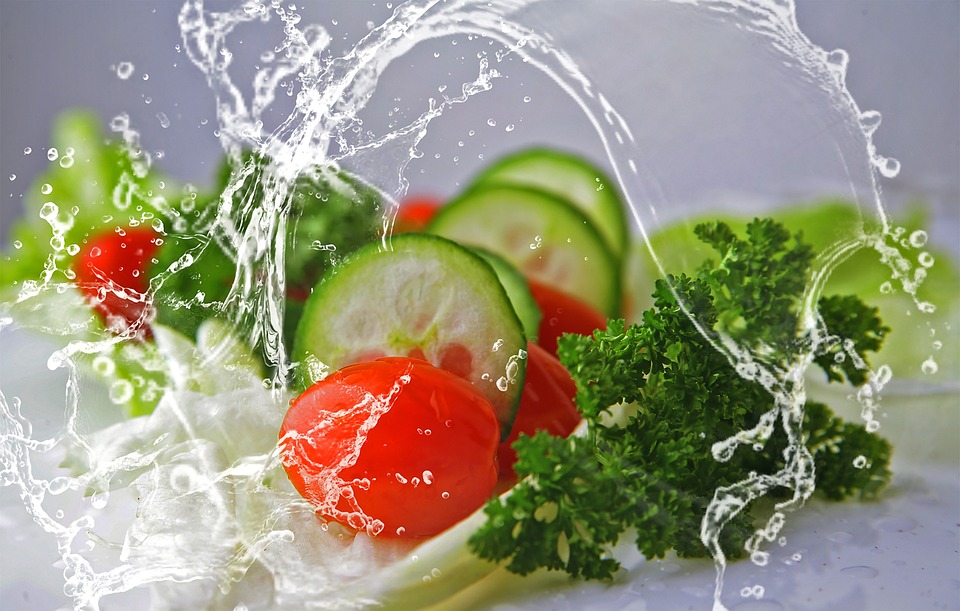gastric sleeve Diet After 5 Years: A Path to Long-Term Success
weight loss surgery, particularly gastric sleeve surgery, has gained popularity in recent years as an effective solution for individuals struggling with obesity. the gastric sleeve, also known as sleeve gastrectomy, involves the removal of a large portion of the stomach, resulting in a smaller stomach pouch. This surgical procedure not only limits the amount of food one can consume but also brings about metabolic changes that aid in weight loss. However, the success of gastric sleeve surgery heavily relies on adopting a healthy and sustainable diet after the procedure. In this article, we will explore the gastric sleeve diet after 5 years, providing valuable insights into long-term success.
The Importance of a Well-Balanced Diet
A well-balanced diet is crucial for individuals who have undergone gastric sleeve surgery. It not only aids in weight management but also ensures proper nutrition and overall health. After 5 years, it is essential to maintain a diet that is rich in essential nutrients while being mindful of portion sizes. Focus on consuming lean proteins, fruits, vegetables, whole grains, and healthy fats. Stay away from processed foods, sugary beverages, and high-calorie snacks.
Protein: The Foundation of a Gastric Sleeve Diet
Protein plays a vital role in the gastric sleeve diet after 5 years. It promotes satiety, aids in muscle growth and repair, and helps maintain a healthy metabolism. Include lean sources of protein such as poultry, fish, tofu, and legumes in your diet. Aim for at least 60-80 grams of protein per day. Protein shakes and supplements may be necessary to meet these requirements, especially for those who struggle to consume enough protein through food alone.
Hydration for Long-Term Success
Proper hydration is often overlooked but is crucial for maintaining overall health and maximizing the benefits of gastric sleeve surgery. After 5 years, it is essential to continue prioritizing hydration. Aim to drink at least 8 cups (64 ounces) of water per day. Adequate hydration aids in digestion, helps prevent constipation, and promotes healthy skin. Avoid sugary drinks and opt for water or unsweetened beverages.
Vitamins and Supplements: A Lifelong Commitment
Gastric sleeve surgery alters the digestive process, making it challenging for the body to absorb certain vitamins and minerals. Therefore, after 5 years, it remains necessary to take vitamin and mineral supplements as prescribed by your healthcare provider. Common supplements include a multivitamin, calcium, vitamin D, iron, and vitamin B12. Regular blood tests will help determine if any deficiencies need to be addressed.
Maintaining a Balanced Lifestyle
While diet plays a significant role in long-term success after gastric sleeve surgery, maintaining a balanced lifestyle is equally important. Regular exercise, stress management, and adequate sleep are all key factors in achieving and maintaining a healthy weight. Incorporate physical activity into your daily routine, find healthy ways to cope with stress, and prioritize quality sleep.
In conclusion, the gastric sleeve diet after 5 years is a journey towards long-term success. By adopting a well-balanced diet, focusing on protein intake, staying hydrated, taking necessary supplements, and maintaining a balanced lifestyle, individuals can achieve and sustain weight loss goals. However, it is crucial to consult with healthcare professionals and registered dietitians who can provide personalized guidance based on individual needs. Remember, gastric sleeve surgery is a tool, and the right diet and lifestyle choices are the keys to unlocking its full potential.
Top Inquiries About Gastric Sleeve Diet After 5 Years
1. What dietary guidelines should I follow after having gastric sleeve surgery?
After having gastric sleeve surgery, it is essential to follow specific dietary guidelines to ensure a successful and healthy weight loss journey. These guidelines typically include:
1. Gradual progression: Initially, you will need to follow a liquid diet for a few weeks before gradually introducing soft and pureed foods. Eventually, you can transition to solid foods, but it is crucial to eat small, frequent meals to avoid overeating.
2. Focus on protein: Consuming an adequate amount of protein is vital for maintaining muscle mass and promoting satiety. Include lean sources of protein such as chicken, fish, tofu, legumes, and low-fat dairy products in your diet.
3. Limit carbohydrates and fats: While carbohydrates and fats are still a part of a balanced diet, it is important to consume them in moderation. Opt for complex carbohydrates like whole grains and vegetables and choose healthy fats like avocados, nuts, and olive oil.
2. Can I eat all types of foods after 5 years of gastric sleeve surgery?
After 5 years of gastric sleeve surgery, you can typically enjoy a wide variety of foods. However, it is crucial to maintain a balanced and nutritious diet to support your long-term weight loss goals. Here are some important points to consider:
1. Portion control: Even though you may be able to eat a more diverse range of foods, it is still vital to practice portion control. Eating smaller meals and avoiding overeating will help you maintain your weight loss and prevent stretching of the stomach.
2. Balanced diet: Aim to consume a balanced diet that includes a mix of lean proteins, healthy fats, complex carbohydrates, and a variety of fruits and vegetables. This will provide your body with essential nutrients while keeping calorie intake in check.
3. Listen to your body: Pay attention to your body’s signals of hunger and fullness. Eat slowly and mindfully, and stop eating when you feel comfortably satisfied. Avoid emotional or mindless eating, as this can hinder your progress.
3. How important is hydration after gastric sleeve surgery?
Hydration is a crucial aspect of post-gastric sleeve surgery recovery and long-term wellbeing. Staying adequately hydrated offers numerous benefits and helps maintain overall health. Here are some key points to remember:
1. Drink water throughout the day: Aim to drink at least 64 ounces (1.9 liters) of water daily. Sip water frequently between meals and avoid consuming large amounts of fluids with meals to prevent discomfort or stretching of the stomach.
2. Avoid sugary beverages: Stay away from sugary drinks such as sodas, juices, and sweetened teas. These beverages can provide empty calories and hinder your weight loss progress. Opt for water, herbal teas, or sugar-free options instead.
3. Monitor urine color: Use urine color as a general indicator of hydration. Ideally, your urine should be pale yellow or clear. If it appears dark yellow, it may be a sign that you need to drink more water.
4. Can I still experience weight regain after 5 years of gastric sleeve surgery?
While gastric sleeve surgery can be highly effective in promoting weight loss, it is possible to experience weight regain even after 5 years. Here’s what you should know:
1. Importance of lifestyle changes: Long-term weight maintenance requires adopting healthy lifestyle habits, including regular exercise and a balanced diet. Failure to make sustainable changes can lead to weight regain over time.
2. Psychological factors: Emotional eating, stress, and other psychological factors can impact weight management. It is essential to address these issues and develop healthy coping mechanisms to avoid weight regain.
3. Regular follow-ups: Continue to schedule regular follow-up appointments with your healthcare team even after 5 years. They can provide guidance, monitor your progress, and help identify any potential issues early on.
5. Are there any specific supplements I should take after 5 years of gastric sleeve surgery?
After 5 years of gastric sleeve surgery, certain supplements may still be necessary to ensure proper nutrition and prevent deficiencies. Here are a few supplements commonly recommended:
1. Multivitamin: A high-quality multivitamin formulated for Bariatric patients can help fill any nutritional gaps and ensure you meet your daily vitamin and mineral requirements.
2. Calcium and vitamin D: These supplements are important for maintaining bone health, especially if you have reduced dairy intake. Consult with your healthcare team to determine the appropriate dosage for your specific needs.
3. Regular blood tests: Regular blood tests can help identify any potential nutrient deficiencies. Based on your test results, your healthcare provider can recommend additional supplements if required.
Please note that these guidelines are general and may vary based on individual circumstances. It is always important to consult with your healthcare team for personalized advice and recommendations tailored to your specific needs.
1. Gastric Sleeve Diet is only necessary for the first year
One common Misconception about the gastric sleeve diet is that it is only necessary for the first year after the surgery. This misconception stems from the belief that the gastric sleeve surgery alone is enough to achieve long-term weight loss. However, the reality is that the diet plays a crucial role in ensuring the success and sustainability of the procedure even after five years.
2. Gastric Sleeve Diet is a temporary fix
Another misconception is that the gastric sleeve diet is merely a temporary fix and that individuals can revert to their previous eating habits once they have achieved their desired weight loss. While the diet does undergo certain modifications over time, it should not be seen as a short-term solution. Long-term success with the gastric sleeve procedure requires a lifelong commitment to a healthy and balanced diet.
3. Gastric Sleeve Diet eliminates the need for exercise
Some individuals believe that following the gastric sleeve diet strictly eliminates the need for exercise. While adhering to the diet is vital for weight loss, incorporating regular physical activity into one’s routine is equally important. Exercise helps to increase metabolism, improve overall fitness, and enhance weight loss results. It also plays a crucial role in maintaining muscle mass and preventing excessive skin sagging.
4. Gastric Sleeve Diet restricts all types of food
A prevalent misconception about the gastric sleeve diet is that it restricts individuals from consuming all types of food. While certain food groups, such as high-calorie, high-sugar, and high-fat foods, are generally advised against, the diet does not completely eliminate all types of food. It is essential for individuals to consume a variety of nutrient-dense foods, including lean proteins, fruits, vegetables, whole grains, and healthy fats, to meet their nutritional needs.
5. Gastric Sleeve Diet guarantees permanent weight loss
Many people believe that undergoing the gastric sleeve surgery and adhering to the diet guarantees permanent weight loss. However, it is important to note that the success of the procedure and long-term weight loss depends on various factors, including individual commitment, lifestyle changes, and behavior modifications. While the gastric sleeve procedure significantly helps in reducing appetite and promoting weight loss, it is not a foolproof solution and requires ongoing dedication to maintaining a healthy lifestyle.
Overall, it is crucial to dispel these misconceptions about the gastric sleeve diet after five years to ensure individuals have accurate information. The gastric sleeve diet plays a vital role in achieving and sustaining long-term weight loss, and it is important to understand its significance beyond the initial year. Additionally, individuals should recognize that the diet is not a temporary fix and must be followed for life to maintain the results of the surgery. Incorporating regular exercise into one’s routine is also essential, despite following the diet strictly. Moreover, the diet does not completely eliminate all types of food but rather focuses on consuming a balanced and nutritious diet. Lastly, it is essential to understand that the gastric sleeve diet alone does not guarantee permanent weight loss, and long-term success requires ongoing commitment and lifestyle changes. By addressing these misconceptions, individuals can have a better understanding of the gastric sleeve diet and make informed decisions regarding their weight loss journey.
Gastric Sleeve Diet After 5 Years
#undergoing #gastric #sleeve #surgery #important #maintain #healthy #diet #ensure #longterm #success #prevent #weight #regain #general #guideline #gastric #sleeve #diet #years

